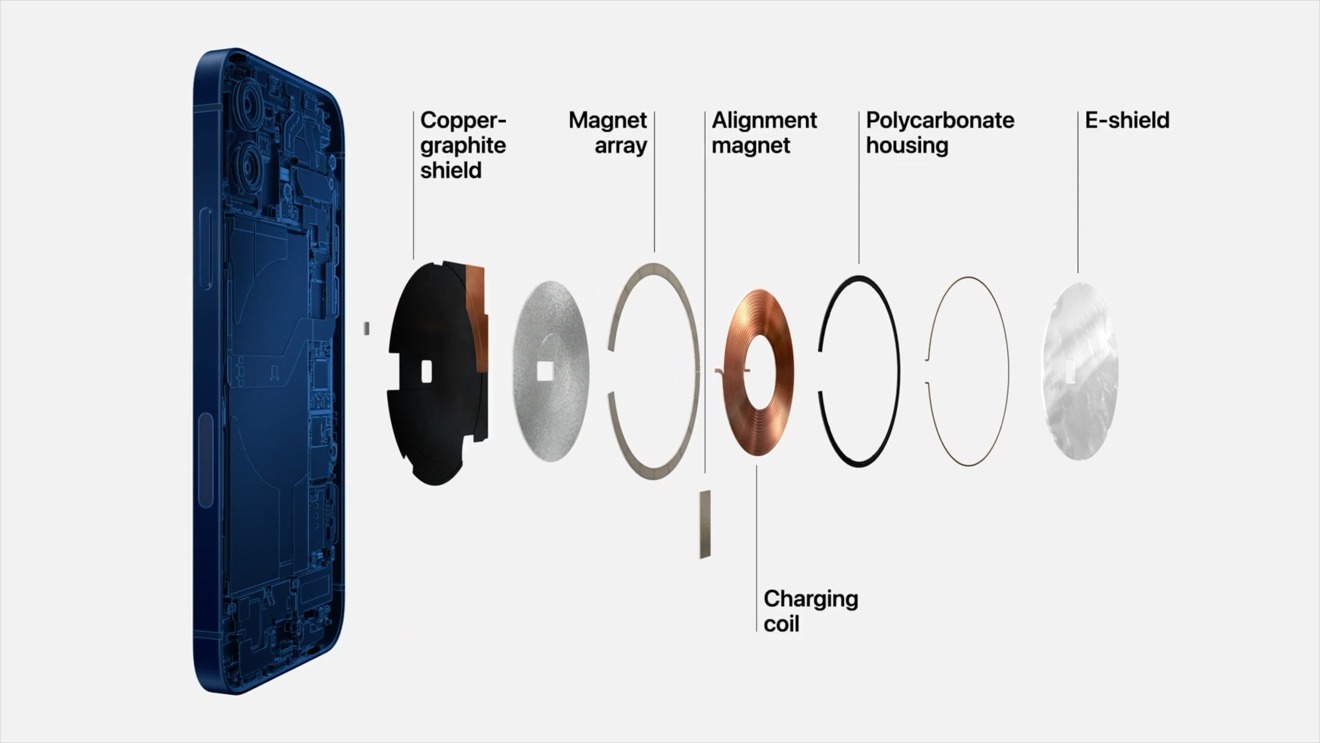Apple publishes updates about the potential medical risks of MagSafe
- This catch was first identified in a study carried out by ‘Heart Rhythm Journal’.
- The magnets in the iPhone 12 series as well as in other MagSafe accessories are the main concern.
- They can cause potential medical risks to users with pacemakers or defibrillators implanted in their chest.
Apple has issued an updated support document a couple of days ago, alerting iPhone 12 users about potential medical risks that can be caused by MagSafe. The updated document was published as a response to a study conducted by ‘Heart Rhythm Journal,’ and was first spotted by MacRumors.
 The study was conducted by three doctors in Michigan. They tested MagSafe's effects on a patient’s pacemaker (implanted in his heart), and found an unexpected result. When an iPhone 12 was brought near the patient's chest, the pacemaker was immediately found to be deactivated. Further, similar results were encountered with MagSafe accessories which use the same alignment of magnets.
The study was conducted by three doctors in Michigan. They tested MagSafe's effects on a patient’s pacemaker (implanted in his heart), and found an unexpected result. When an iPhone 12 was brought near the patient's chest, the pacemaker was immediately found to be deactivated. Further, similar results were encountered with MagSafe accessories which use the same alignment of magnets.
 The results were highly likely due to a ring of magnets housed on the back of the iPhone. The magnets within the iPhone 12 series are meant to attract the magnets in the MagSafe accessories in order to align the wireless charging coils perfectly. This allows for a proper wireless charging experience, while keeping the accessory intact with the iPhone. These magnets are not strong enough to pose any greater risks to regular users.
The results were highly likely due to a ring of magnets housed on the back of the iPhone. The magnets within the iPhone 12 series are meant to attract the magnets in the MagSafe accessories in order to align the wireless charging coils perfectly. This allows for a proper wireless charging experience, while keeping the accessory intact with the iPhone. These magnets are not strong enough to pose any greater risks to regular users.
As mentioned by Apple in their document:
Though all the iPhone 12 models contain more magnets than prior iPhone models, they are not expected to pose a greater risk of magnetic interference to medical devices than prior iPhone models.
However, medically-aided people who require special equipment (such as pacemakers and defibrillators) may encounter problems if their iPhone gets too close. Apple clearly states that these products contain sensors and radios that emit electromagnetic fields which can interfere with certain medical devices.
iPhone contains magnets as well as components and radios that emit electromagnetic fields. All MagSafe accessories (each sold separately) also contain magnets—and MagSafe Charger and MagSafe Duo Charger contain radios. These magnets and electromagnetic fields might interfere with medical devices.
The issues with these medical devices arise due to the interference of magnetic fields, when a magnet (which has a strong magnetic field) is brought near them. When exposed to magnetic fields, pacemakers or defibrillators get subjected to induced electromotive forces due to the magnetic fields coming from the magnets. This in turn alters the natural rhythm of these devices thereby causing serious risks to that person’s life. It is typical for these medical devices to revert back to its normal rhythm once the magnetic field is removed, making the effect temporary in most cases. However, it’s important not to overlook the major risks if exposed for a long period of time.
 Therefore, Apple has been suggesting medically-aided users keep their iPhone or any MagSafe accessories 6 inches away at a minimum. They also suggested keeping the device 12 inches away while wireless charging, to avoid any of the potential risks mentioned earlier. The company also emphasizes users should stop using their iPhone or any MagSafe accessory immediately if they suspect even a minor change, and to consult their physician immediately if so.
Therefore, Apple has been suggesting medically-aided users keep their iPhone or any MagSafe accessories 6 inches away at a minimum. They also suggested keeping the device 12 inches away while wireless charging, to avoid any of the potential risks mentioned earlier. The company also emphasizes users should stop using their iPhone or any MagSafe accessory immediately if they suspect even a minor change, and to consult their physician immediately if so.
A full support document regarding the magnets inside the iPhone 12 series and MagSafe can be found on the Apple Support website.
Recommended by the editors:
Thank you for visiting Apple Scoop! As a dedicated independent news organization, we strive to deliver the latest updates and in-depth journalism on everything Apple. Have insights or thoughts to share? Drop a comment below—our team actively engages with and responds to our community. Return to the home page.Published to Apple Scoop on 26th January, 2021.
No password required
A confirmation request will be delivered to the email address you provide. Once confirmed, your comment will be published. It's as simple as two clicks.
Your email address will not be published publicly. Additionally, we will not send you marketing emails unless you opt-in.